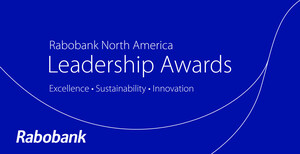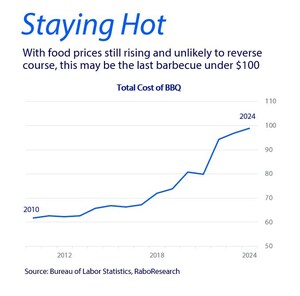Rabobank Report: Mexico, Brazil, Poland, Nigeria Are Potential High Growth Wine Markets As Well As China, South Korea
Offer Competitive Advantages for Early Entrants
NEW YORK, Nov. 26, 2012 /PRNewswire/ -- Rabobank has published a new research report on the growth potential of emerging wine markets, identifying Mexico, Brazil, Poland and Nigeria as having long-term growth potential for the wine industry, in addition to the traditional emerging wine markets of China and South Korea.
In the report, titled "The Road Less Travelled," Rabobank's Food & Agribusiness Research and Advisory group says that while China and South Korea probably rank as the most attractive emerging wine markets, Mexico, Brazil, Poland and Nigeria are four "hidden gems" that have the potential to become important growth markets. Rabobank says that early investments to establish a route to market and build brand awareness hold the key to long term growth in these markets.
Rabobank says that with maturing or declining sales in many traditional markets, wine companies across the globe are increasingly searching for new growth markets. Emerging markets are attracting the interest of nearly all major wine companies. But, the bank says, those companies that were late to invest in these markets often have a greater challenge as the competition has already established routes to market and has garnered share of mind with the consumer.
Hidden gem markets are not currently the largest nor the most attractive wine markets in the world. These markets offer good prospects for long term growth, but are in earlier stages of development and may thus carry more risk. However, the rewards for identifying hidden gem markets, investing early and successfully developing a beachhead may be worth the risk for some companies.
Rabobank's four hidden gems – Mexico, Brazil, Poland and Nigeria – each offer good prospects of medium to longer term growth for ambitious wine exporters willing to make early investments in building their brands in these markets:
- Rabobank says that the Mexican market may be easy to overlook, but it is proving lucrative for many suppliers. As well as enjoying a strong economy, the growth in the middle class population is leading to improved wine consumption trends and wine imports grew at a 20 percent compound annual growth rate (CAGR), between 2006 and 2011.
- Similarly, imported wine volumes in Brazil grew by nearly 30 percent in the four years from 2007 and 2011 due to growing interest in wine and limitations of domestic producers to match the quality of imports.
- Poland too, has seen strong growth in demand for imported wine, and although pricing remains constrained, the relatively low levels of corruption may make it an attractive option for foreign investors.
- In contrast, Nigeria is far less transparent than Poland and requires a much higher tolerance for risk, but wine imports have been growing at a 16 percent CAGR in recent years, and the government has made progress in modernizing the economy and reducing social conflict. With a population of approximately 170 million and large strategic petroleum reserves, Nigeria has a strong foundation for continued economic growth and increased demand for wine.
Stephen Rannekleiv, Rabobank Food & Agribusiness Research analyst, said: "Wine companies are now facing the question of what to do with these four hidden gems. Although they present opportunities, each has a very different market with much uncertainty for traditional branded wine companies. Furthermore, along with the opportunities in these markets come risks, and the possibility that the opportunity may not be realized.
"The flip side is that early exposure to nascent markets gives a company hard-won experience and expertise as well as a head start on the competition that will likely emerge as the markets develop. Wine companies that manage these opportunities correctly have a chance at securing long-term profitable growth."
The Rabobank report on the growth potential of these smaller emerging wine markets is available to media upon request.
Rabobank Group is a global financial services leader providing wholesale and retail banking, asset management, leasing, real estate services, and renewable energy project financing. Founded over a century ago, Rabobank is one of the largest banks in the world, with nearly $1 trillion in assets and operations in more than 40 countries. In North America, Rabobank is a premier bank to the food, beverage and agribusiness industry. Rabobank's Food & Agribusiness Research and Advisory team is comprised of more than 80 analysts around the world who provide expert analysis, insight and counsel to Rabobank clients about trends, issues and developments in all sectors of agriculture. www.Rabobank.com
SOURCE Rabobank
WANT YOUR COMPANY'S NEWS FEATURED ON PRNEWSWIRE.COM?
Newsrooms &
Influencers
Digital Media
Outlets
Journalists
Opted In






Share this article